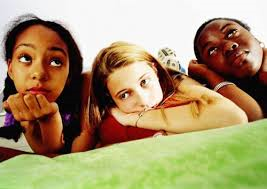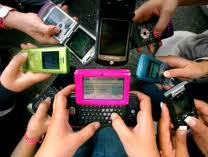 The term “oldster” irritates me, probably because it is supposed to represent that stratum of society of which I am now a member. The word sounds demeaning, at least to me, perhaps because it is the polar opposite of the word “youngster,” which as a ten-year-old child, I disliked because I was beginning to crave being taken more seriously. Both terms are meant to imply an affectionate dismissal with a pat on the head, as though for a puppy or a very old dog. Funny how our perspectives change over time, even though, in some ways, we end up pretty much where we started, if we live long enough.
The term “oldster” irritates me, probably because it is supposed to represent that stratum of society of which I am now a member. The word sounds demeaning, at least to me, perhaps because it is the polar opposite of the word “youngster,” which as a ten-year-old child, I disliked because I was beginning to crave being taken more seriously. Both terms are meant to imply an affectionate dismissal with a pat on the head, as though for a puppy or a very old dog. Funny how our perspectives change over time, even though, in some ways, we end up pretty much where we started, if we live long enough.
 Though I taught high school for thirty-five years, I have come to that juncture in my life, where I find it awkward to be around teenagers. A case in point was a dinner I attended three weeks ago at the lovely home of friends in downtown Denver, an interesting gathering including two vegans, the host and hostess (both gourmet cooks), my partner Jim and me, and two nephews of the host, one a high school junior and the other a sophomore. Jim managed to engage both boys in a surface conversation about gaming at War Craft, and Star Wars. The eyes of both boys lit up briefly. The rest of the evening neither boy said anything much, except an occasional “No” or “Uh huh,” despite the rest of us trying hard to draw them into conversation. Both boys are intelligent, doing all right in school but confined by what seem to be narrow boundaries of interest in or knowledge of reading or news about the world around them. This, of course, is not rare.
Though I taught high school for thirty-five years, I have come to that juncture in my life, where I find it awkward to be around teenagers. A case in point was a dinner I attended three weeks ago at the lovely home of friends in downtown Denver, an interesting gathering including two vegans, the host and hostess (both gourmet cooks), my partner Jim and me, and two nephews of the host, one a high school junior and the other a sophomore. Jim managed to engage both boys in a surface conversation about gaming at War Craft, and Star Wars. The eyes of both boys lit up briefly. The rest of the evening neither boy said anything much, except an occasional “No” or “Uh huh,” despite the rest of us trying hard to draw them into conversation. Both boys are intelligent, doing all right in school but confined by what seem to be narrow boundaries of interest in or knowledge of reading or news about the world around them. This, of course, is not rare.
 Maybe I’m complaining about something that has always been the case, though I do expect teenagers to know something about current events beyond the fluffy, personal revelations of Facebook. I didn’t want to grill the kids beyond asking what they liked to read, what they enjoyed best about school, and what their keenest interests were. Shrugs were the pat responses to those inquiries. I mean, teenagers have always been figuratively “a different species,” but I remember having wonderful discussions and debates with terrific feedback from the teens in classes I taught. Of course, it has been ten years since I was still a school teacher, so it may be that since that time teens have retreated ever more deeply into that tiny world of iPhones and the artificial preservative of texting that has, in many homes across the country (and world), replaced actual conversation and other human contact as we once knew it.
Maybe I’m complaining about something that has always been the case, though I do expect teenagers to know something about current events beyond the fluffy, personal revelations of Facebook. I didn’t want to grill the kids beyond asking what they liked to read, what they enjoyed best about school, and what their keenest interests were. Shrugs were the pat responses to those inquiries. I mean, teenagers have always been figuratively “a different species,” but I remember having wonderful discussions and debates with terrific feedback from the teens in classes I taught. Of course, it has been ten years since I was still a school teacher, so it may be that since that time teens have retreated ever more deeply into that tiny world of iPhones and the artificial preservative of texting that has, in many homes across the country (and world), replaced actual conversation and other human contact as we once knew it.
 Then again, I do remember the dormitory in college. We didn’t have raves or crowd surfing, but much of what we did then wasn’t fodder for conversation with adults either. The rope harness my roommate created to sneak onto the third floor of the girls’ dorm, the contests in the study lounge to see who could break a wooden plank over his head, the chugging competitions with whisky smuggled inside dozens of English Leather men’s cologne bottles, and contests in the main dormitory lounge to see who could tumble over the big ottoman most like Dick Van Dyke ( one guy broke his collar bone in a valiant attempt to emulate Van Dyke). No, I too must have remained silent during many adult conversations with aunts, uncles, grandparents, and my parents’ friends, when asked what I was up to.
Then again, I do remember the dormitory in college. We didn’t have raves or crowd surfing, but much of what we did then wasn’t fodder for conversation with adults either. The rope harness my roommate created to sneak onto the third floor of the girls’ dorm, the contests in the study lounge to see who could break a wooden plank over his head, the chugging competitions with whisky smuggled inside dozens of English Leather men’s cologne bottles, and contests in the main dormitory lounge to see who could tumble over the big ottoman most like Dick Van Dyke ( one guy broke his collar bone in a valiant attempt to emulate Van Dyke). No, I too must have remained silent during many adult conversations with aunts, uncles, grandparents, and my parents’ friends, when asked what I was up to.
 Maybe teens haven’t changed as much as I imagine they have. After all, the world of teens is still a citadel, where adults are foreigners, or at least tourists or trespassers. Even with a temporary visa, an adult can feel as dull in a teen’s environment as the teen can feel in the world of adults, where cocktails and politics remain alien territory. JB
Maybe teens haven’t changed as much as I imagine they have. After all, the world of teens is still a citadel, where adults are foreigners, or at least tourists or trespassers. Even with a temporary visa, an adult can feel as dull in a teen’s environment as the teen can feel in the world of adults, where cocktails and politics remain alien territory. JB

